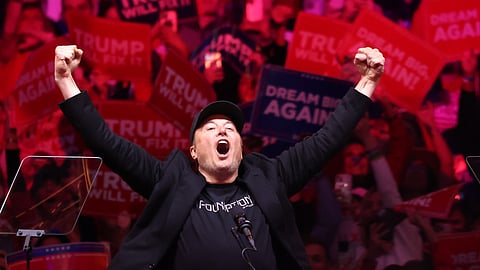Wall Street and Musk bet on Trump, auto stocks surge on emissions rollback hopes – Liam Denning
Detroit supported Vice President Harris, but Wall Street favoured Trump, driving up GM and Ford shares. Investors anticipate relaxed emissions standards, fewer EV incentives, and potential tariffs, favouring Detroit's gas vehicles. However, Trump's promises may bring complications, such as tariffs raising consumer costs and slowing EV progress, especially amid Tesla's unique advantages.
Sign up for your early morning brew of the BizNews Insider to keep you up to speed with the content that matters. The newsletter will land in your inbox at 5:30am weekdays. Register here.
The seventh BizNews Conference, BNC#7, is to be held in Hermanus from March 11 to 13, 2025. The 2025 BizNews Conference is designed to provide an excellent opportunity for members of the BizNews community to interact directly with the keynote speakers, old (and new) friends from previous BNC events – and to interact with members of the BizNews team. Register for BNC#7 here.
By Liam Denning
___STEADY_PAYWALL___

